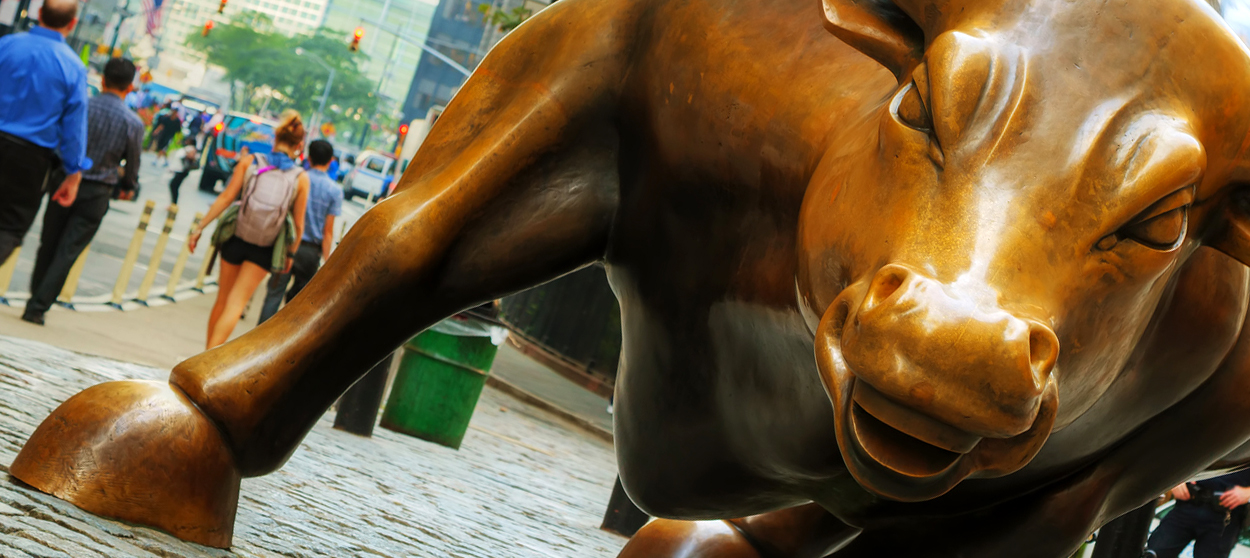The best thing that could happen to the American economy just happened
Is this the tech boom we've been waiting for?


A free daily email with the biggest news stories of the day – and the best features from TheWeek.com
You are now subscribed
Your newsletter sign-up was successful
"No recession" may prove a lot more important in the 2020 presidential election than "no collusion."
So what's next for the Trump economy? It's the biggest economic debate happening right now, especially given the huge potential political implications. Team Trump is optimistic. White House economists predict the 2018 upturn in GDP growth to 3 percent is here to stay thanks in large part to the GOP tax cuts for business investment. But most forecasters, whether on Wall Street or at the Congressional Budget Office and Federal Reserve in Washington, are skeptical. They see growth easing back toward the 2 percent pace seen since the Great Recession. What's more, one popular recession predictor — when long-term interest rates fall below short-term yields — is flashing a worrisome warning sign.
But there's something important that might be starting to happen inside the American economy that could confound all those forecasts. And it has to do with innovation. Now, "innovation" is far more than just a business consultant buzzword. Better technology and techniques conjure the deep magic of any successful modern economy. Just adding machines and workers only gets you so far. And if the U.S. is to grow anywhere near as fast in the future as in the past, greater innovation-driven productivity will be indispensable.
The Week
Escape your echo chamber. Get the facts behind the news, plus analysis from multiple perspectives.

Sign up for The Week's Free Newsletters
From our morning news briefing to a weekly Good News Newsletter, get the best of The Week delivered directly to your inbox.
From our morning news briefing to a weekly Good News Newsletter, get the best of The Week delivered directly to your inbox.
But economy-wide innovation has been in a funk, up just a meager 0.4 percent annually since 2007 vs. 1.4 percent annually between 1995 and 2007. At least until last year, that is. Multifactor productivity — again, the part of productivity growth accounted for by technological progress rather than better-trained workers or more buildings and software — rose by 1.0 percent in 2018, the strongest gain since the current expansion began in 2010. To further put that number in perspective, multifactor productivity growth at that pace is about what we've done since World War II. Without it, the U.S. economy would have only grown about two-thirds as fast over the past 60 years.
What's really exciting is this: Economists have been waiting and wondering when all the tech advances of the past decade — smartphones, AI, big data, drones — would start showing up in the productivity stats. It's been reminiscent of how economists wondered the same thing about the computer revolution of the 1970s and 1980s — right before the 1990s tech boom. But sometimes it take a while for businesses to figure things out. It took more than a half century for steam power to overtake water as the largest power source in Great Britain. It also took about as long for even half of U.S. factories to become electrified after the introduction of the alternating-current electric motor.
One American economist familiar with this history is former Federal Reserve chairman Alan Greenspan. Although frequently cited as one of the key people responsible for the financial crisis, Greenspan in the 1990s was one of the first experts to notice something was up with productivity, much to the skepticism of many of his colleagues and staffers. "In the end, the chairman turned out to be right," writes economist and former Fed Governor Laurence Meyer in his book A Term at the Fed. "His call on the productivity acceleration was a truly great one."
So maybe Silicon Valley and the rest of Corporate America are finally resolving the current productivity paradox. (Fingers crossed, though, given the volatility of these stats, especially when you factor in the possible lingering effects of the Great Recession.) If so, it's of much greater economic importance than anything happening in Washington these days. An innovation boom will make it a lot easier for the economy to grow closer to 3 percent rather than 2 percent, even if the deficit-driven stimulative effects from Trumponomics fade as most economists predict.
A free daily email with the biggest news stories of the day – and the best features from TheWeek.com
Of course, the irony is that all this tech progress might be occurring just as Washington is turning on Big Tech. Many Democrats and Republicans seem eager to heavily regulate or break up Alphabet, Amazon, Apple, and Facebook. Maybe it's time they paused to see if this incipient innovation boomlet turns into something more.
James Pethokoukis is the DeWitt Wallace Fellow at the American Enterprise Institute where he runs the AEIdeas blog. He has also written for The New York Times, National Review, Commentary, The Weekly Standard, and other places.
